TECHNOLOGY OF ART
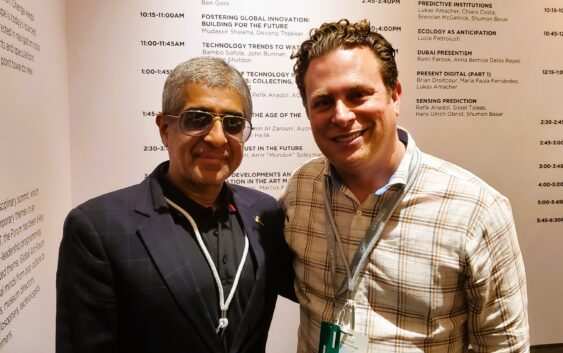
The first Christie’s Art+Tech Summit was hosted in Dubai for the first time on March 2, 2023, as part of Art Dubai 2023. This Summit represented a historic event and is expected to be the first of many. The one-day conference brought together international creators and collectors of art and technology to discuss AI, digital asset ownership, financial innovation, and Blockchain.
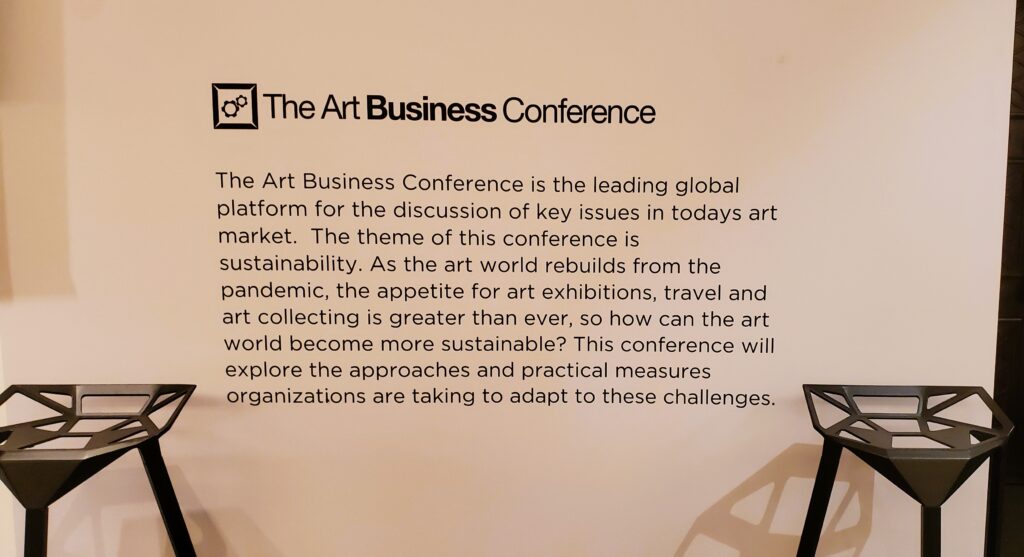
Christie’s hosted the agenda-setting conference for the sixth time, following earlier events in New York, Hong Kong, and London. Christie’s Art+Tech conference Dubai was sponsored by MoonPay, the premier Web 3 infrastructure, and TIME, the NFT art and web3 community effort, which continued their support from the Christies New York conference last year.
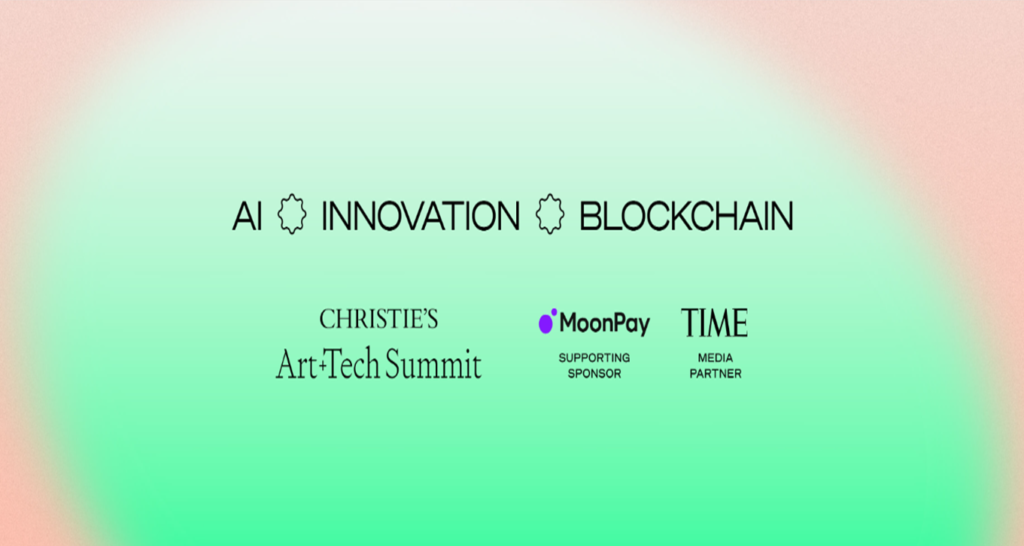
The Web3, artificial intelligence, robots, and blockchain summit included panel discussions and fascinating exchanges with entrepreneurs, artists, thinking leaders, and collectors. From the Metaverse to Artificial Intelligence and FinTech technologies, conference participants will be able to hear from and connect with innovators at the forefront of creating and developing revolutionary new products and enterprises.
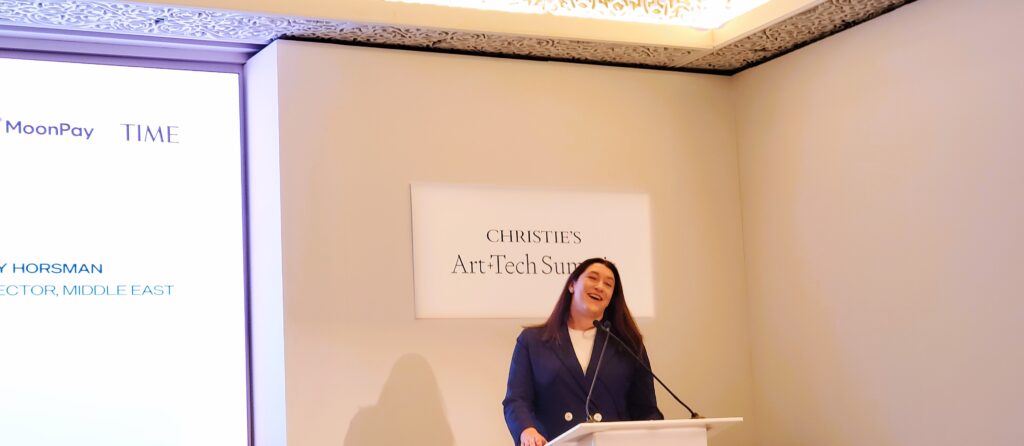
Meagan Kelly Horsman, Managing Director, Christie’s Middle East commented, ‘Christie’s is honoured to bring the Art+Tech Summit to Dubai for the first time as part of the Art Dubai 2023 programme. Christie’s has led the conversation in the Art and Tech space since 2018 when the first summit took place in London, bringing together global leaders from the art and the technology sectors. The UAE is very much at the forefront of adopting breakthrough innovation in the tech industry and the participation of regional leaders in this sector is a great source of pride to the UAE and Christie’s Middle East’.

Her Excellency Sarah Bint Yousif Al Amirii, Minister of State for Advanced Technology and Chairwoman of the UAE Space Agency, led the delegation of UAE speakers and represented the country as a thought leader in new technologies and advanced innovation. The speakers were Mudassir Sheikha, CEO and Founder of Careem, and Keith Grossman, President of MoonPay.
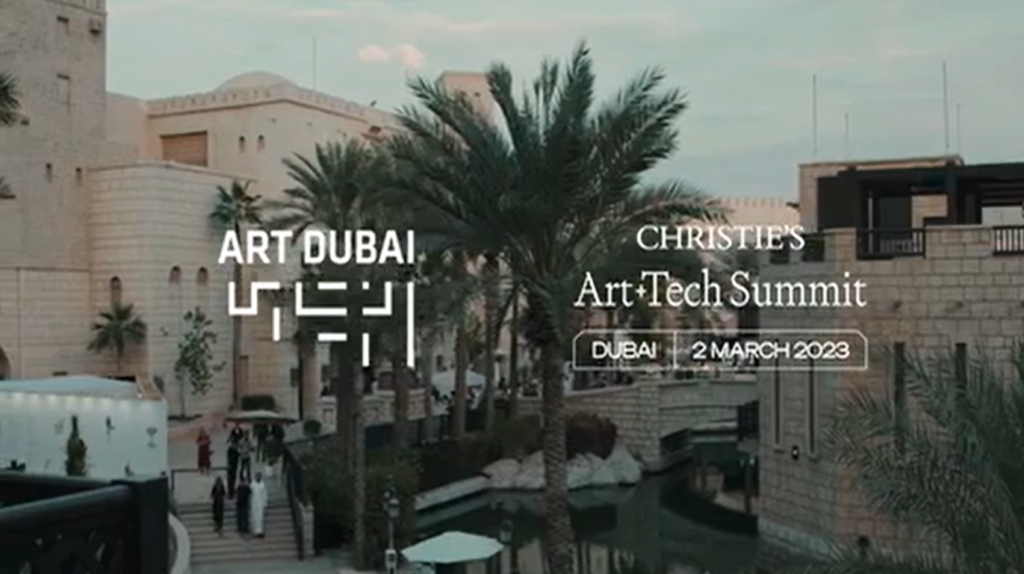
The summit was a huge fantastic success, and it served to advance the discussion on the role and influence of emerging technologies in the art world, and helped define the future of the art industry. The Christie’s Art+Tech Summit was It was an excellent opportunity for worldwide producers, makers and collectors to collaborate and learn from one another, and it contributed to the ongoing discussion about the role and influence of developing technology in the art world.
Here are some of the key takeaways from the summit:
- Artificial intelligence is being utilised to generate new and inventive types of art. Artificial intelligence is being used to generate everything from digital art to interactive sculptures.
- Blockchain is altering the way art is purchased and sold. Blockchain technology enables safe and transparent transactions, making it easier for consumers to purchase and sell artwork online.
- Robotics is being utilized to automate operations in the art industry. Robotics is being utilized to automate chores like packing and transporting paintings, therefore making the art sector more efficient.
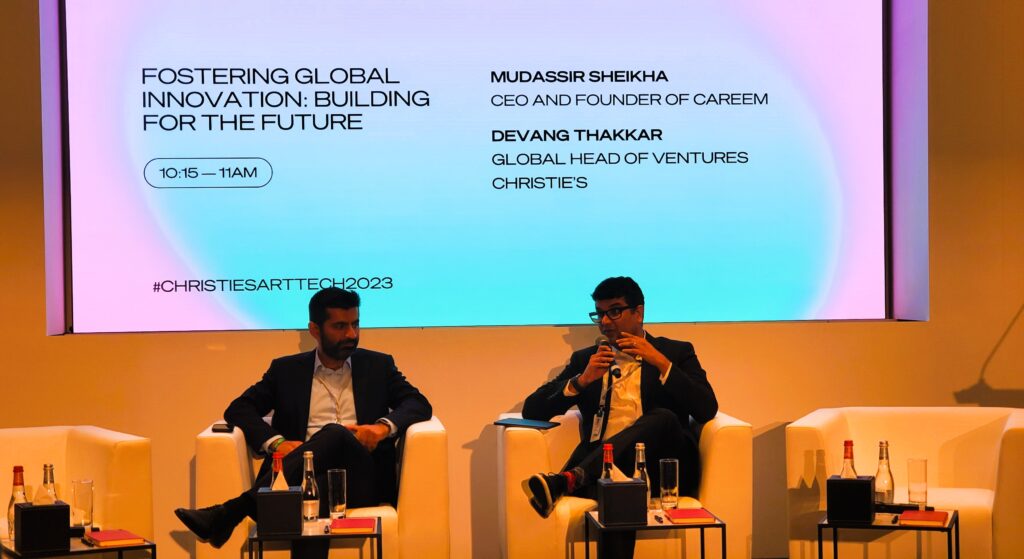
The chat on FOSTERING GLOBAL INNOVATION: BUILDING FOR THE FUTURE, was moderated by Devang Thakkar, Global Head of Christie’s Ventures. Mudassir Sheikha, CEO and Founder of Careem discussed the potential for blockchain technology to revolutionize the art sector. He stated that blockchain technology might make it simpler to purchase and sell art online, as well as secure artists’ copyrights. Blockchain technology can improve transparency in the art market by creating a secure and irreversible record of purchases and transactions, therefore reducing fraud and increasing market confidence.
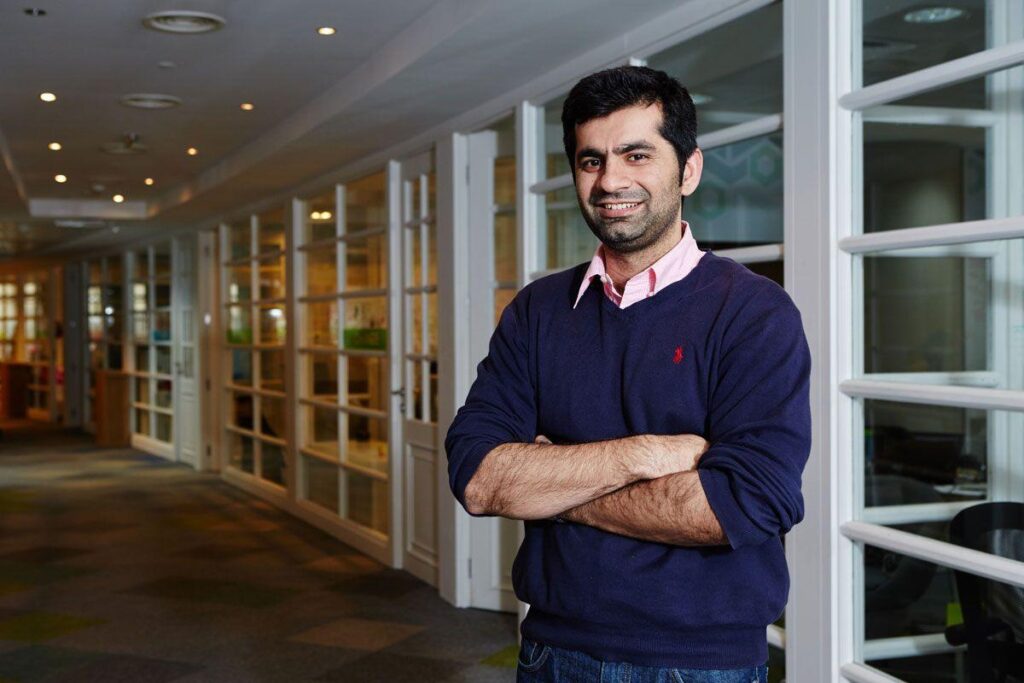
With blockchain, we can significantly improve the user experience since it now functions as a public ledger that allows us to engage with it in a whole different way than we would with older systems. The app’s user experience is incredibly simplified, and you may redeem miles with alliance partners in a few clicks using a seamless interface.
In terms of being proactive and providing excellent customer service, he stated, “The mindset is that we must stay ahead – we must be the first to understand the needs of customers and captains in our markets.” The Middle East lacks well-developed infrastructure compared to other regions of the world. So there is a lot of effort in distinguishing by providing a better pickup and drop-off experience through more reliable location information.
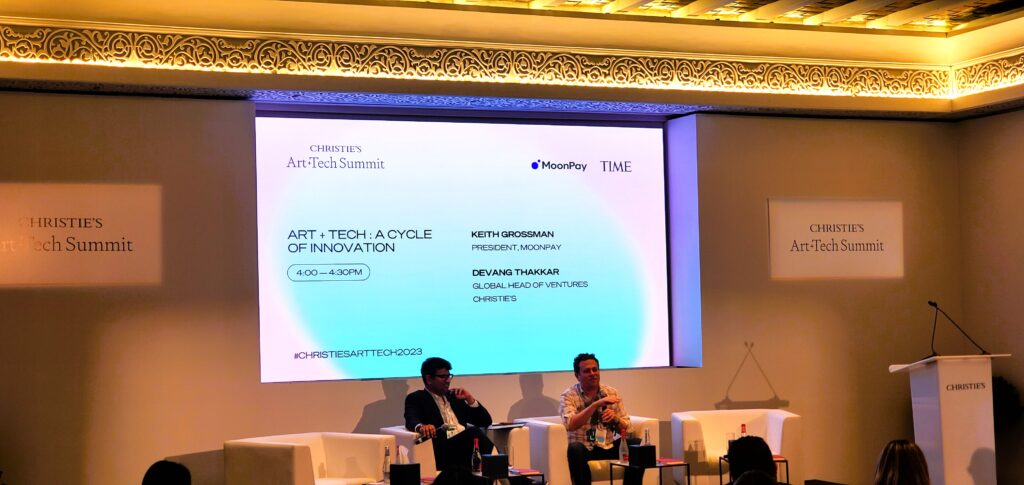
In the chat topic, ART + TECH : A CYCLE OF INNOVATION, Keith Grossman – President, MoonPay was moderated by Devang Thakkar, Global Head of Christie’s Ventures.
Keith Grossman, President of MoonPay emphasized the need of making cryptocurrencies more accessible to the general people. He stated that MoonPay is aiming to make it simpler for consumers to acquire and trade cryptocurrencies, which he feels will contribute to making the art world more inclusive. MoonPay’s goal is to make it as simple and user-friendly as possible for people to buy and sell art using cryptocurrencies.
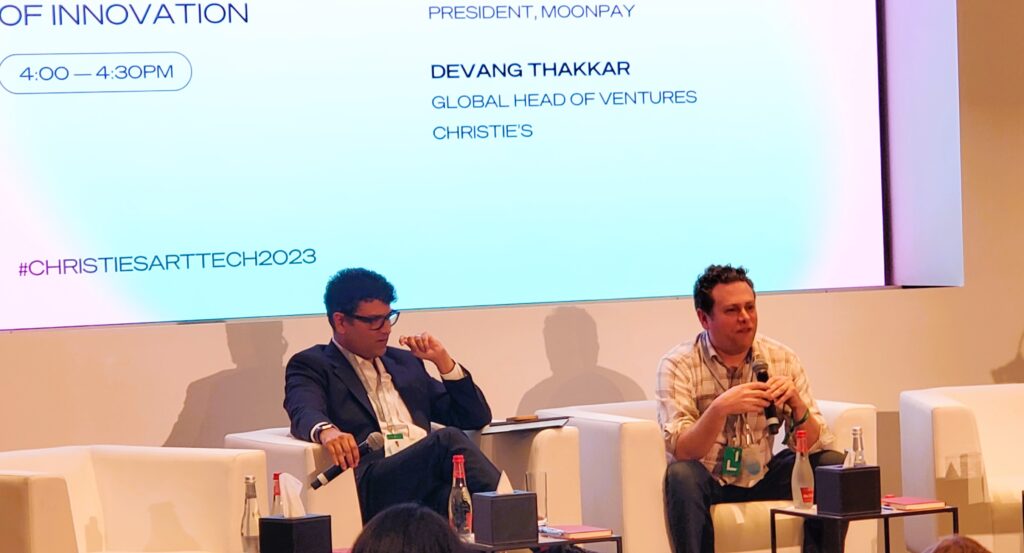
‘The Christie’s Art + Tech Summit Series has become one of the most sought after invites within the web3 space. MoonPay is not only thrilled to be partnering with Christie’s on these incredible events but also in helping them facilitate transactions of their great artworks as they continue to build Christie’s 3.0’, said Keith A. Grossman, President, Enterprise at MoonPay.
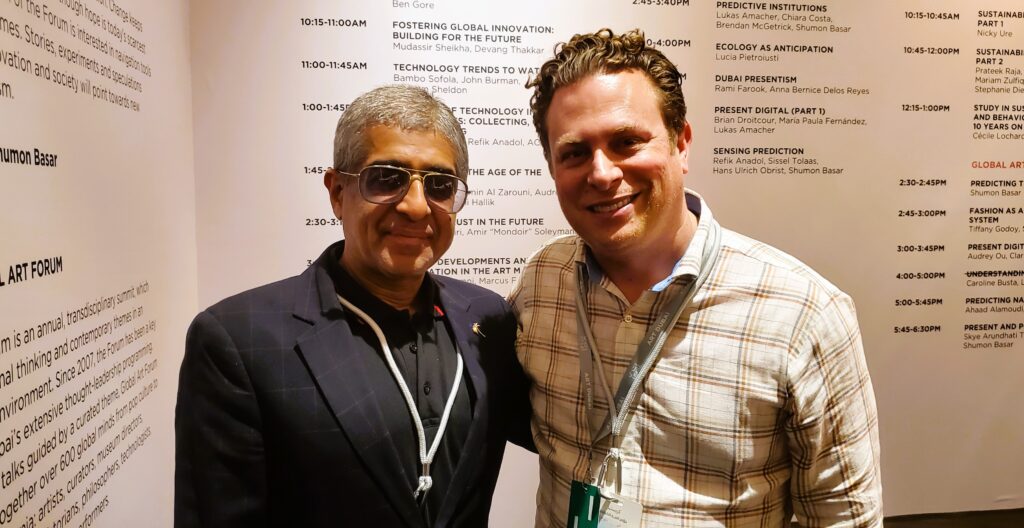
GB with Keith Grossman – President, MoonPay.
Grossman strongly highlighted his conviction that “while many are focused on cryptocurrency, mass adoption will come from culture, namely Art+Tech.”
MoonPay’s goal is to provide a fast, simple, and secure way for people to enter the cryptocurrency market, without needing to go through complex processes or using multiple platforms.
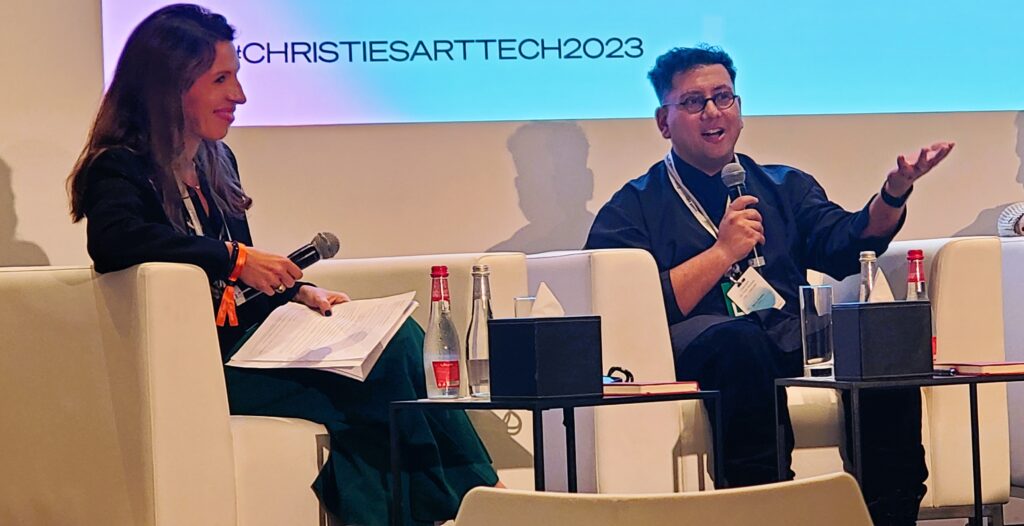
The panel discussion on THE ROLE OF TECHNOLOGY IN THE LIVES OF CREATIVES: COLLECTING, CURATING AND CREATING, moderated by Beatriz Ordovas, International Senior Director, Head of Post-War and Contemporary Iberia, Christie’s, the panelists were Lukas Amacher, Managing Director, 1of1 Collection Gallery, Refik Anadol, Artist, and AC, 6529, Portfolio Manger.
Refik Anadol is a Turkish-American artist renowned for his work in artificial intelligence and digital art, indicated that technology plays an important part in the life of creatives and discussed how technology affects art collection, curation, and creation.
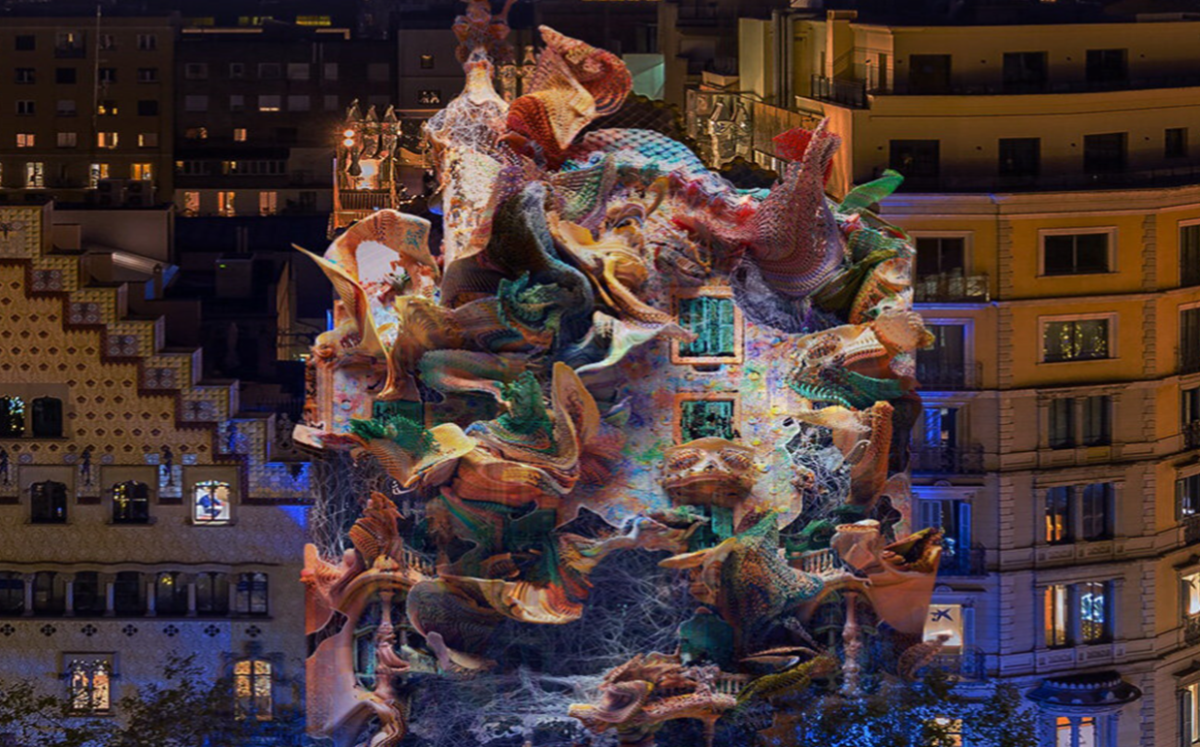
Refik Anadol’s amazing AI Data Sculpture project, “Casa Batlló: Living Architecture,” stunned the delegates with its stunning visual display. The dynamic NFT/AI data sculpture uses AI-generated picture projections on Gaudí’s landmark edifice. The photos were made using real-time data taken from the building’s front.
In terms of creation, Refik sees technology as a strong instrument that can broaden the scope of art, allowing artists to experiment with new kinds of expression and interact with AI in novel and interesting ways. In terms of collecting, Refik feels that technology may assist artists and collectors in better organizing and managing their collections, making them more available to a larger audience.
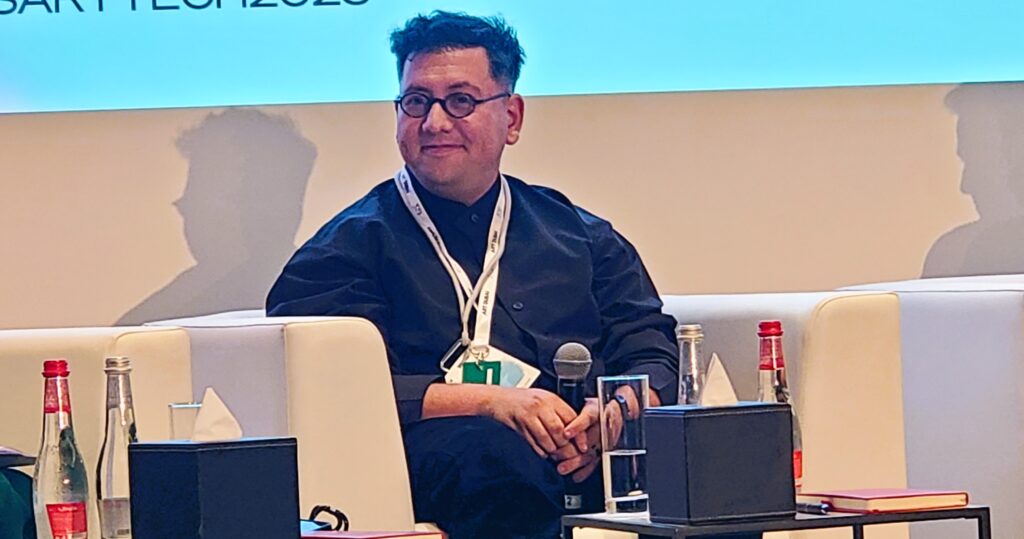
When it comes to curating, Refik sees technology as a tool that assists curators create more engaging and dynamic experiences for visitors while also reaching a worldwide audience via online platforms. Overall, Refik sees technology as a positive beneficial force that is changing how art is made, consumed, and appreciated.
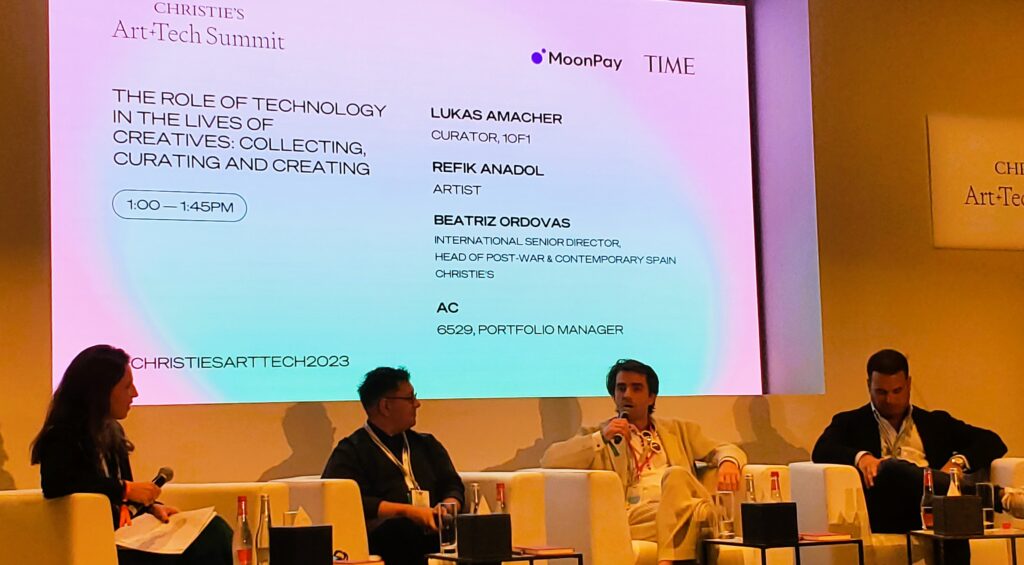
“This is a new period in which both collecting and creating have progressed. “I’ve never seen a better period,” AC told the audience.
Amacher emphasised its problematic nature, contrasting it with conventional and physical art and said “It feels that the art world – the world in general – is kind of divided.There’s the fraction that doesn’t pay attention, and then there’s the fraction that is generally curious and generally interested in what could be.”
He pointed out how digitalization has transformed access to art. “The fact that we all have mini computer screens in our pockets that we carry around — and that it has surface area and accessibility to all kinds of artwork everywhere — that is what excites me, that I have a museum in my pocket,” he added. “You will always find people who are skeptical,” he said. If artists face rejection, it is likely that they are “making something new…(and) opening doors for new people and new generations.”
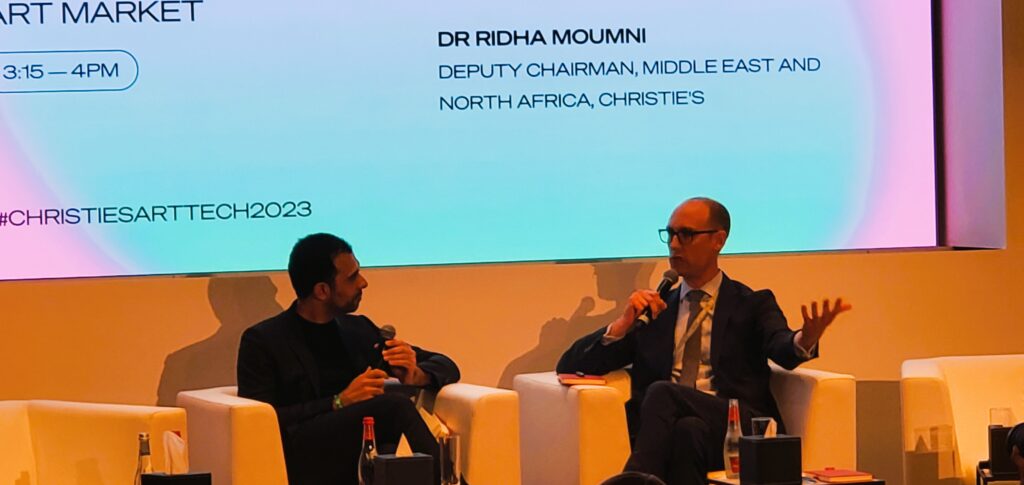
Marcus Fox, Global MD of the 20th and 21st-century art group at Christie’s and Dr. Ridha Moumni, Deputy Chairman, Christie’s Middle East discussed ‘Recent Innovations and Developments in the Art Market,’ and shared their perspectives on the recent developments in the Art Market. According to them, in recent years, there has been a dramatic growth in the appreciation of artists’ prices, disrupting the once-common process of art speculation.
“When you are working in the academic world, you are focusing on different topics. In the auction house, you try to understand the artwork, how to read an artwork, how to collaborate with a collector, how to try to sell an artwork, and how you can anticipate the market,” Dr. Ridha Moumni told the audience.
The two talked about how Christie’s has grown since its founding in London in 1766, focusing a light on previously ignored areas of art. The auction house inaugurated its Dubai location in 2006, selling modern and contemporary art from the Arab world, Turkey, and Iran. “We’re seeing a different representation of art collecting with our most important clients, who, if we speak plainly, bought for most of Christie’s multi-century history, works that were created by old or dead white men,” said Fox.
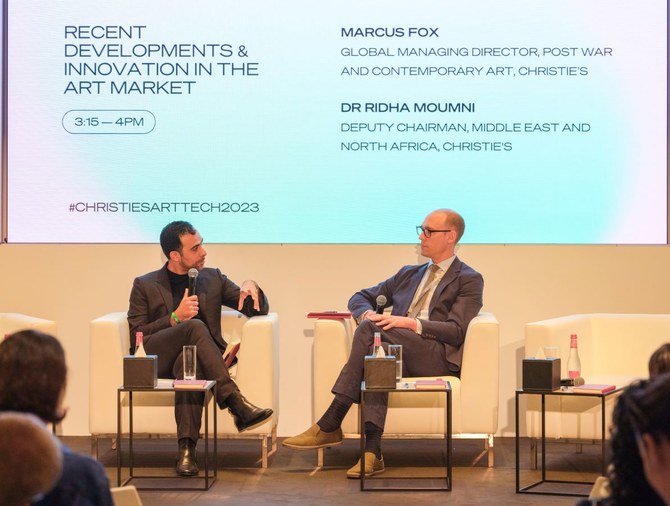
“That is changing now. There’s a lot of opportunities, in terms of being engaged with communities, understanding the needs of those communities, understanding what role we play.” Moumni stated that the Dubai office has worked to educate the public about regional art by developing relationships with collectors and museums and releasing publications about pioneering artists.
“I think the auction houses in the region have a visibility and maybe also a responsibility at some point,” he said. In a post-colonial world when art and culture from the area had traditionally lacked record and preservation, Moumni feels he is living in an exciting period of rediscovering Middle Eastern artists. “We are the new region,” he said. “This market is very new, but also extremely appealing.”
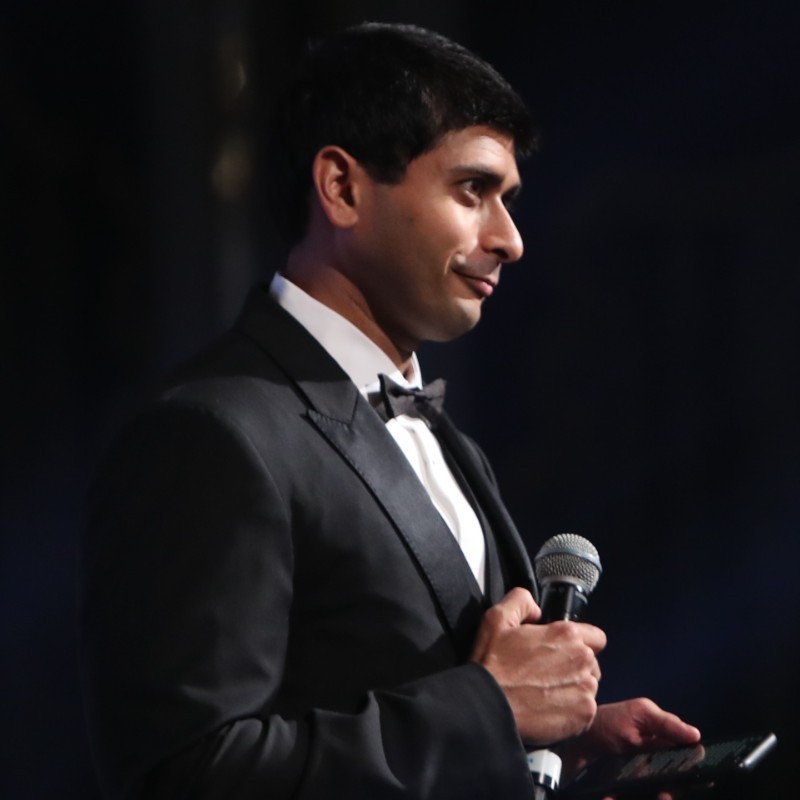
At the panel discussion, the panelists – Shashi Menon, CEO, UNXD & Nervora, Amin Al Zarouni Bedu, CEO & Audrey Ou, CEO TRLab, moderated by Vanessa Barboni Hallik, Founder, CEO Another Tomorrow discussed CREATIVITY IN THE AGE OF THE METAVERSE.
Shashi Menon, Founder and CEO, Nevora elaborated on how brands are participating in the metaverse and believes that brands are participating in the metaverse because it provides a unique opportunity for them to engage with consumers in new and immersive ways. Through the use of virtual environments, brands can create interactive experiences that allow customers to connect with their products and messaging in a more meaningful way. Additionally, the metaverse enables brands to reach a global audience, and to create communities around their products and services. Furthermore, the metaverse provides a platform for brands to experiment with new forms of marketing and advertising, such as virtual events and product launches. Overall, Shashi Menon sees the metaverse as a powerful tool that can help brands to connect with customers, build their brand, and drive sales.
Shashi Menon, CEO of UNXD, a curated NFT marketplace for digital luxury and culture, feels that NFTs are more than just a product of technology; they are part of cultures.
Menon said that fashion and luxury businesses’ natural advantages in generating personal encounters, which technology could not replicate, made them the ideal bridge between the physical and spiritual.
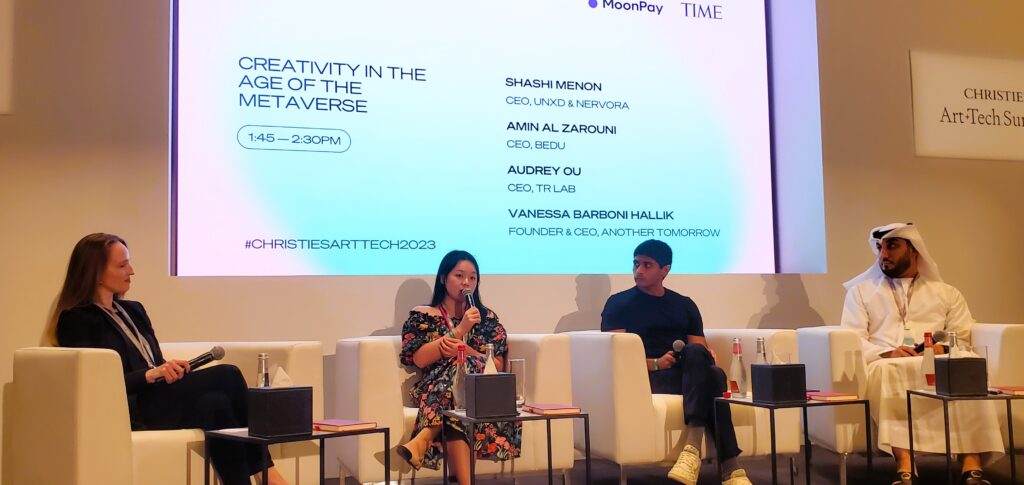
Amin Al Zarouni Bedu, the CEO of Bedu, believes that brands are participating in the metaverse because it provides them with an opportunity to reach and engage with consumers in new and innovative ways. The metaverse offers a virtual environment where brands can create immersive experiences that allow customers to interact with their products and messaging in a more engaging way. Additionally, the metaverse provides a platform for brands to create communities around their products and services, and to build strong relationships with their customers. Furthermore, the metaverse enables brands to reach a global audience, and to create a presence in virtual spaces that are accessible to anyone with an internet connection. Overall, Amin Al Zarouni Bedu sees the metaverse as a powerful tool that can help brands to connect with customers, build their brand, and drive sales in the digital age.
Bedu’s CEO, AminAl Zarouni, stated that the region provided the most conducive climate for blockchain and other technologies. He believes the metaverse will open up new opportunities in the public sector, particularly in education.
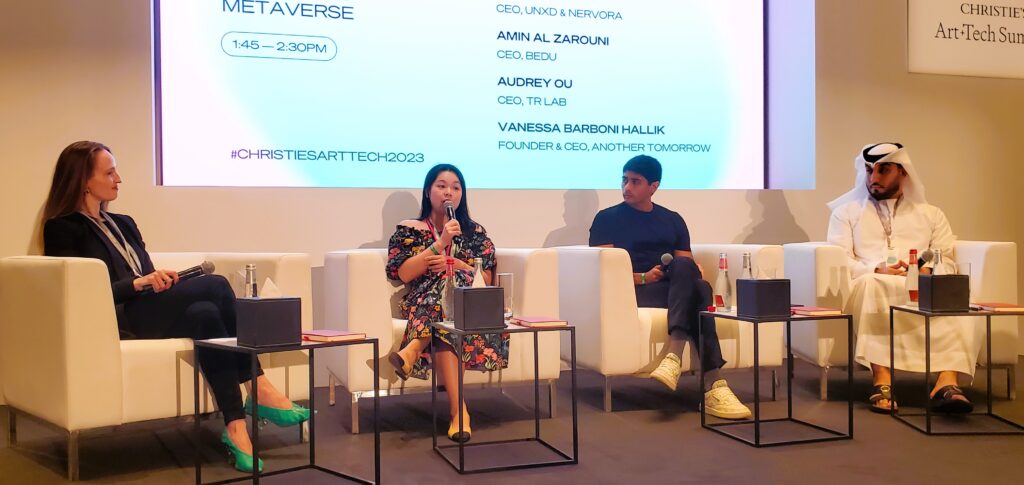
Audrey Ou, the CEO of TRLab, believes that brands are participating in the metaverse because it provides a unique opportunity to create immersive experiences that can enhance customer engagement and drive business results. Audrey sees the metaverse as a platform for brands to experiment with new forms of marketing and advertising, such as virtual events and product launches, and to create virtual spaces where customers can interact with their products and messaging in new and innovative ways. Additionally, Audrey sees the metaverse as a powerful tool for employee engagement and training, allowing companies to create virtual environments where employees can collaborate and learn in immersive and interactive ways. Overall, Audrey Ou sees the metaverse as a powerful tool that can help brands to connect with customers, drive business results, and build their brand in the digital age. Audrey Ou, CEO of TR Labs, acknowledged that their primary goal is to provide long-term value to their consumers.
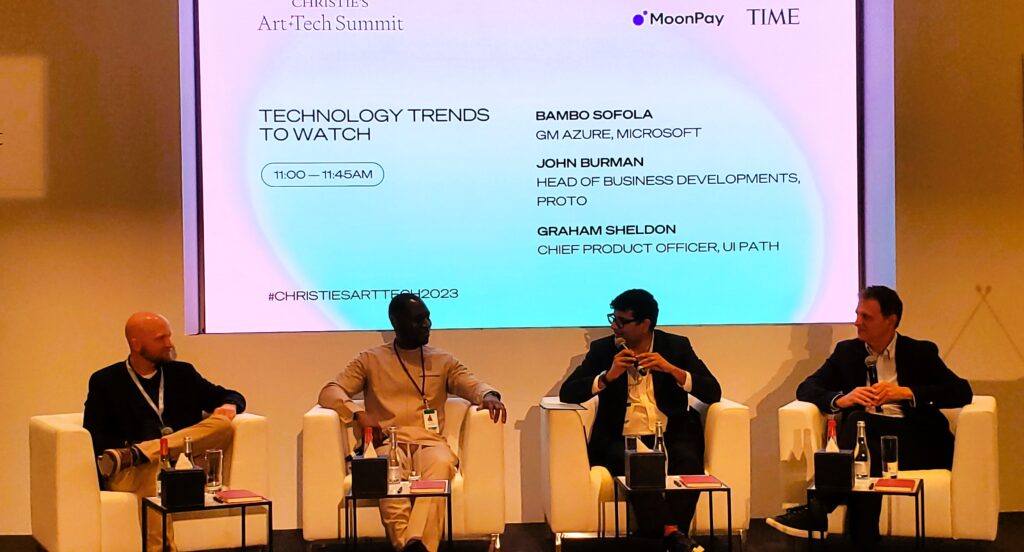
In the panel discussion titled – Technolgy trends to watch, the panelists Bambo Sofola – GM Azure, Microsoft, John Burman – Head of Business Developments, Proto Graham Sheldon – Chief Product Officer, UI Path, discussed the current hot trend of GI (Generative AI), the disruption and introduction of various generative AI tools such as ChatGPT and DALL-E, and how firmly it has captured the attention of trend watchers and fueled it ablaze.
Bambo Sofola, General Manager of Microsoft Azure, emphasised the need of accessible cloud platforms and software productivity as AI increasingly integrates into our lives. Microsoft’s recent announcement of an expanded cooperation with OpenAI demonstrated the tech giant’s commitment to AI, which will undoubtedly be one of the driving factors driving advancement in many industries, including art.
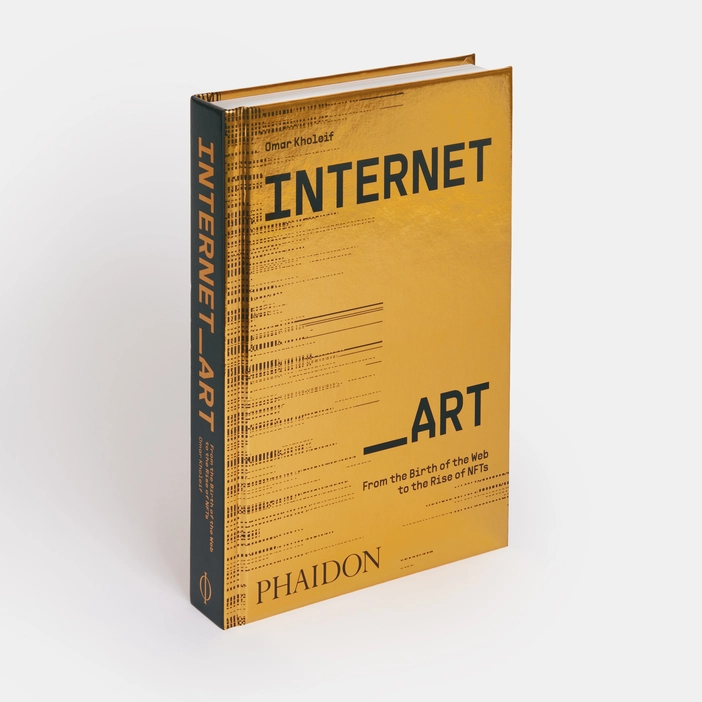
At the Christie’s Art+Tech Summit 2023, delegates were given the book “Internet_Art” by Dr. Omar Kholeif, Senior Curator of the Sharjah Art Foundation. This book highlights the key artists and innovators from the early days of browser-based art until the emergence of NFT technology. Dr. Kholeif presented the book to the audience during the conference, which marked its premiere.

